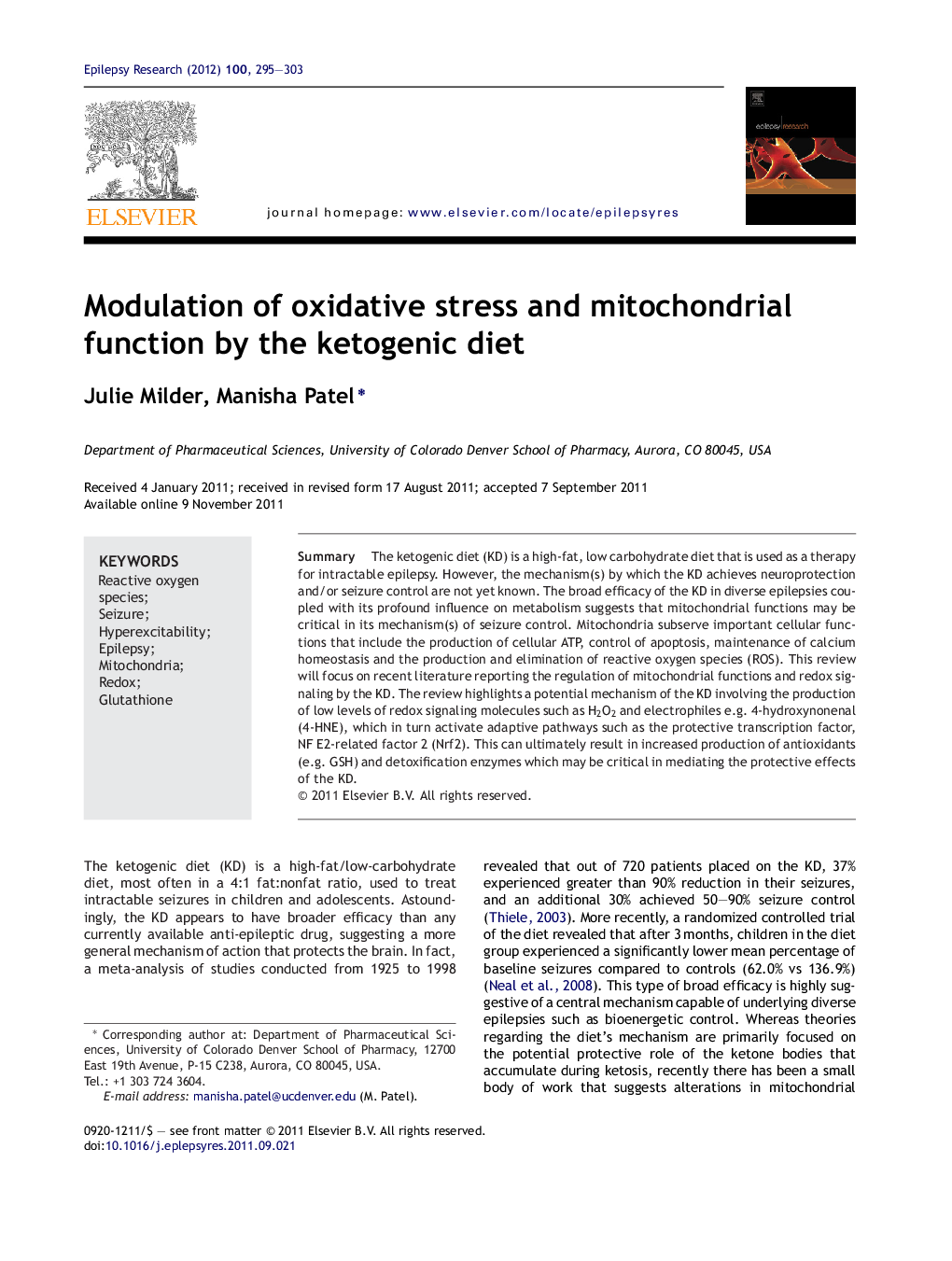| Article ID | Journal | Published Year | Pages | File Type |
|---|---|---|---|---|
| 3052228 | Epilepsy Research | 2012 | 9 Pages |
SummaryThe ketogenic diet (KD) is a high-fat, low carbohydrate diet that is used as a therapy for intractable epilepsy. However, the mechanism(s) by which the KD achieves neuroprotection and/or seizure control are not yet known. The broad efficacy of the KD in diverse epilepsies coupled with its profound influence on metabolism suggests that mitochondrial functions may be critical in its mechanism(s) of seizure control. Mitochondria subserve important cellular functions that include the production of cellular ATP, control of apoptosis, maintenance of calcium homeostasis and the production and elimination of reactive oxygen species (ROS). This review will focus on recent literature reporting the regulation of mitochondrial functions and redox signaling by the KD. The review highlights a potential mechanism of the KD involving the production of low levels of redox signaling molecules such as H2O2 and electrophiles e.g. 4-hydroxynonenal (4-HNE), which in turn activate adaptive pathways such as the protective transcription factor, NF E2-related factor 2 (Nrf2). This can ultimately result in increased production of antioxidants (e.g. GSH) and detoxification enzymes which may be critical in mediating the protective effects of the KD.
